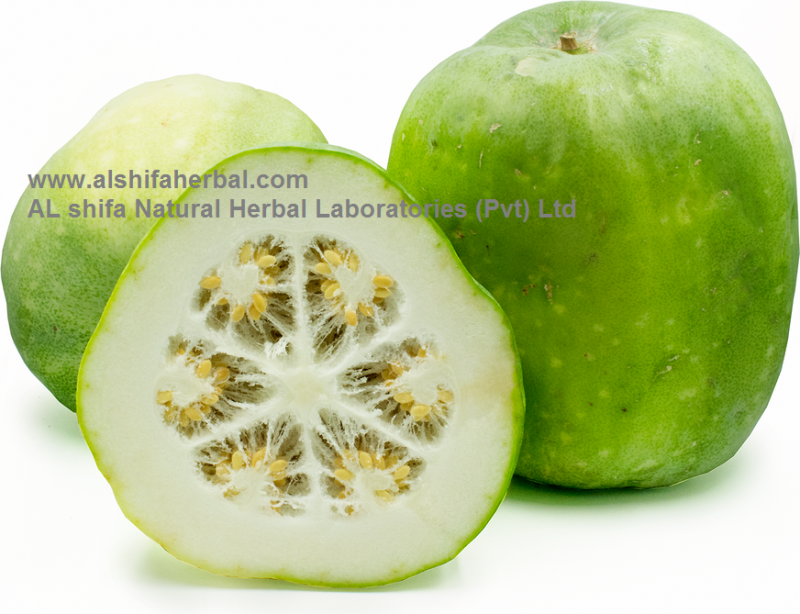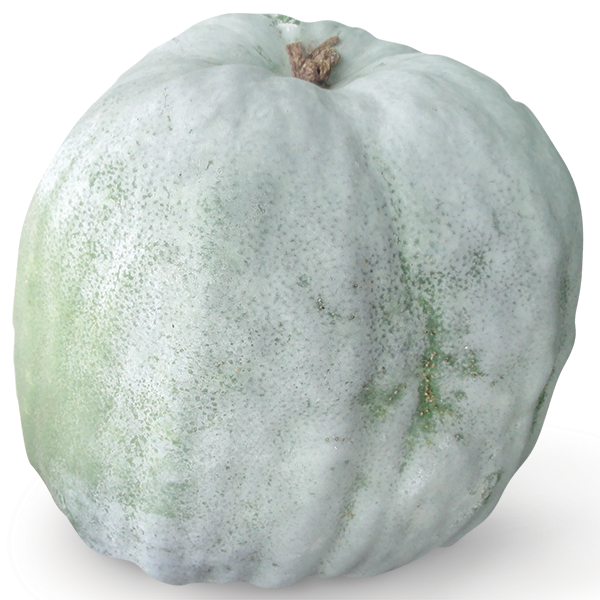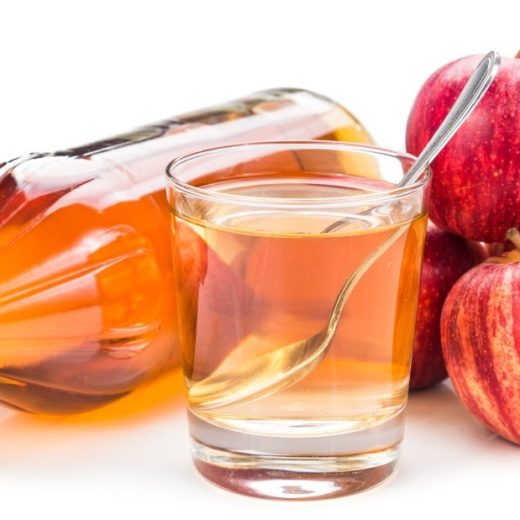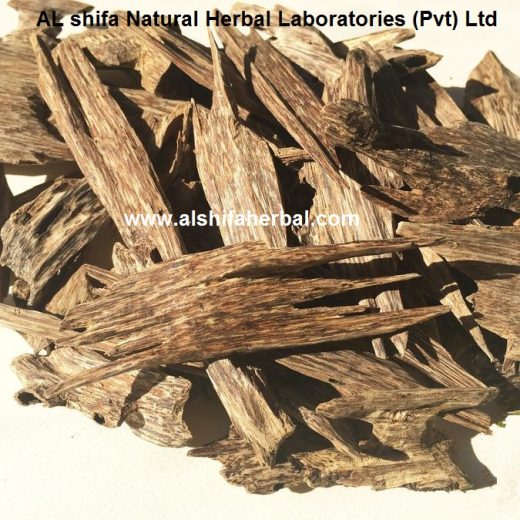The fruit is anthelmintic, antiperiodic, aphrodisiac, astringent, demulcent, diuretic, expectorant, febrifuge, laxative, nervine tonic, nutritive, styptic and tonic. It is used in the treatment of lung diseases, asthma, cough, etc. Recent research has shown that the fruits contain anticancer terpenes. Also useful in haemoptysis and other haermorrhages from internal organs. It is highly nutritious food in wasting diseases as pulmonary consumption. Also useful in epilepsy, insanity, peptic ulcer, ulceration of the lungs, hoarseness, etc.
Recommended Dosage
5 to 7 g. seeds.
Contraindication
This fruit has no known warnings or contraindications.
9 Surprising Winter Melon Benefits
Winter melon is one of the most highly prized vegetables in certain parts of the world due to its nutritional value and impressive health benefits, which include its ability to reduce chronic disease, improve digestion, strengthen the immune system, protect the heart, boost vision, and increase energy levels, among others.
What is Winter Melon?
While the name “melon” might make people believe that this is a fruit, winter melon is actually a large vine vegetable, with pale white flesh and a fuzzy interior. The sole member of the Benincasa genus, winter melon goes by many different names, including ash gourd, fuzzy gourd and tallow gourd. As an immature vegetable, there is a slight sweetness to the melon, but upon maturation, that sweetness dissipates into a more bland flavor, similar to a cucumber. Every part of the winter melon plant can be used for culinary or medicinal purposes, and it is used widely in Asia, particularly in China. These melons can grow up to 80 cm in length, and can be stored for many months without going bad, similar to many other gourds. It is commonly used in soups and stews, but can also be candied or included in curries. The juice of the vegetable can also be used in a variety of healthy beverages, while the sprouts and tendrils of the vine can be eaten as greens.
The nutritional value of winter melon is what makes it so important for human health, as the high concentration of vitamin C and vitamin B2 can have a wide variety of effects on the body. This is in addition to high levels of dietary fiber, zinc, iron, phosphorous, potassium and assorted other vitamins and minerals in smaller amounts. Together, these nutrients make for a very powerful dietary supplement, which is why winter melon is so widely cultivated and respected throughout the world. Now, let’s take a closer look at some of the health benefits that winter melon can provide.
Health Benefits of Winter Melon
Health benefits of winter melon include the following:
Boosts Vision
A significant amount of research has linked vision problems to a deficiency in riboflavin, more commonly known as vitamin B2. Winter melon also has very high levels of vitamin B2, more than 11% of your daily requirement in a single serving. By increasing the amount of vitamin B2 in your system, you can reduce your chances of eye disorders, while the antioxidants found in winter melon help to reduce oxidative stress in the retina and macular degeneration.
Protects the Heart
With high levels of potassium and vitamin C, winter melon is a tried and true protector of cardiovascular health. Potassium functions as a vasodilator, meaning that it can help to lower blood pressure by releasing tension in the blood vessels and arteries, letting blood flow more freely. This makes it more difficult to develop atheroslcerosis, which can compound heart issues and increase your risk of coronary heart disease. Furthermore, vitamin C has been directly linked to reduced chances of a stroke.
Boosts Immunity
With more than 19% of your daily vitamin C requirements in a single serving, winter melon is a powerful immune system booster. Vitamin C can stimulate the production of white blood cells, and also acts as an antioxidant to neutralize free radicals and prevent the mutation of health cells. Winter melon also boasts a decent amount of zinc, which is another critical component to immune system health.
Stimulates Growth & Development
Most people only think of vitamin C as an immune system booster, but in fact, vitamin C performs a number of key functions in the body. Perhaps most importantly, it is a component in the production of collagen, which is one of the basic building blocks of cells, tissues, muscles, bones and blood vessels. If you are still in developmental stages of your life, or recovering from an injury/illness, you want high levels of vitamin C to provide raw materials for growth and repair. Winter melon delivers that vitamin C in a major way!
Helps in Digestion
Dietary fiber is an important part of any healthy diet, as it can optimize digestion and prevent many unfortunate gastrointestinal issues, including constipation, bloating, cramping, hemorrhoids, and general stomach upset. Dietary fiber can also improve the nutrient uptake efficiency of the gut, along with reducing cholesterol levels in the cardiovascular system!
Increases Energy Levels
Taking in the right nutrients is one thing, but being able to properly use them is another. Vitamin B2 plays an important part in human metabolism, ensuring that the nutrients are converted into usable energy. Along with its many other impacts on hormonal balance and health, the high level of vitamin B2 found in winter melon keeps us functioning and using nutrients efficiently!
Improves Cognitive Function
The significant level of iron found in winter melon makes it an ideal solution for increasing circulation to extremities of the body. Iron is a key component in the production of red blood cells, so when you have more iron, you have better circulation of fresh, healthy and oxygenated blood. This means that winter melon can not only protect against the symptoms of anemia, but also ensure proper blood flow to the brain, which can increase concentration, focus and memory.
Detoxifies the Body
In traditional medicine, winter melon is often used as a diuretic, which can help to detoxify the body. Urination eliminates excess toxins, fats, salts and water from the body, so any vegetable that can induce that detoxification will help your liver and kidney perform at optimal levels.
Helps in Weight Loss
Winter melon is often praised as a weight loss tool, because it is high in fiber and relatively low in calories. This popular vegetable will make you feel full, thus reducing between-meal snacking and overeating, without pushing your calorie intake for the day over certain limits. The rich blend of minerals and nutrients also promotes muscle growth and a stronger metabolism, thereby compounding the weight loss effects.
Winter melons are the large fruit which is consumed as a vegetable and are found during the cold seasons. Due to their large size, it is marketed in slice form. The young ones have sweet taste whereas the mature ones are tasteless. It is rich in water texture. It possesses a large seed.
| Name | Winter melon |
|---|---|
| Scientific Name | Benincasa hispida |
| Native | South Asia and Southeast Asia, now is widely cultivated throughout Asia, the Americas, Europe and Australia. During the Renaissance, Winter melon was introduced to Europe. |
| Common/English Name | Wax Gourd, Ash Gourd, Chinese Water Melon, Chinese Preserving Melon, Joined Gourd, Gourd Melon, Tallow Gourd, Winter Melon, Winter Gourd, White Pumpkin |
| Name in Other Languages | Burmese: Kyauk-Hpayon, Kyauk Pha-Yon Thee; Czech: Tykev Vvosková; Chinese: Pai Gua, Dong Gua; Danish: Voksgræskar, Voksagurk; Dutch: Waskalebas; Eastonian: Vahakõrvits; French: Pastèque De Chine, Courge Cireuse; German: Wintermelone, Prügelkürbis; India:- Assamese: Komora, Kumora, Bengali: Kumra, Chal Kumra, Hindu: Gol-Kaddu, Raksa, Kannada: Boodu Gumbala, Kooshmaanda, Malayalam: Cumbulam, Kumpalam, Marathi: Kohala, Mizoram: Maipawl, Sanskrit: Brhatphala, Kushmanda, Tamil: Alattuppucini, Ven Poosani, Tulu: Karkumbuda, Telugu: Budidegummadi, Pendligummadikaaya, Urdu: Petha; Indonesia:– Aceh: Kundur, Kundo, Bugis: Kunrulu, Dayak: Butong, Gayo: Gundur, Irian Jaya: Laha, Javanese: Baligo, Bligo Semangka, Lampung: Sardak, Madurese: Kundur, Bhaligho, Malay: Beligu, Kundur, Minangkabau: Kundue, Nias: Undru, Simalur: Kudul, Sundanese: Baligo, Leyo; Italian: Zucca Della Cera; Japanese: Togan, Togwa; Khmer: Trâllach; Korean: Dong A; Laotian: Tônx, Mak Ton; Malaysia:– Malay: Kundur, Kundor, Iban: Ensengai, Celau; Nepalese: Petha, Kubiindo; Pakistan: Petha; Philippines:- Bikol: Rodal, Bisaya: Tibiayon, Kandol, Iloko: Tabungaw, Ivatan: Kondol, Kapampangan: Kundul, Subanum: Tabugok, Sulu: Kundal, Tagalog: Tambulok, Kondol; Portuguese: Abóbora D’água, Comalenge; Singapore (Hokien): Tang Kua; Spanish: Calabaza China, Calabaza Blanca; Sri Lanka (Sinhalese): Puhul; Taiwanese: Dangguev; Thai: Faeng, Fak, Mafak Mon; Tibetan: Ku-Sma-Nda-Ka; Turkish: Mom Kabagi; Vietanamese: Bí Dao, Bi Xanh. |
| Plant Growth Habit | Annual, hispid, robust, monoecious climbing |
| Growing Climate | Warm tropical and subtropical |
| Soil | Well-drained, light, friable |
| Plant Size | 1-2 m. (3-6 ft.) |
| Lifespan | Long shelf life |
| Stem | Terete, thick, furrowed and coarsely hairy |
| Leaf | Rounded or kidney-shaped, Diameter: 10 – 25 centimeters, 5-7 lobed, heart-shaped at base |
| Edible parts of the plants | Fruit: It is consumed as vegetables. The raw ones are consumed like sliced cucumbers. It is also consumed as fruit drink which have distinctive taste. Pulp: The pulp could be preserved in the form of sweet candies and pickles. Shoots, tendrils and leaves: It is fried, boiled or cooked and consumed as greens. Flower buds: It is used in sayur or in the form of sepan. Seeds: Seeds are eaten by roasting or frying as snack foods. |
| Flowering Season | July – September |
| Flower | Large, yellow, hairy bell-shaped calyx tube |
| Fruit shape & size | Ovoid or ellipsoid, length: 25 – 40 cm |
| Fruit weight | 30 pounds |
| Fruit color | Green with chalky white wax |
| Flesh color | White |
| Fruit peel | Thin |
| Flavor/aroma | Mild aroma, not prominent |
| Fruit Taste | Sweet |
| Seed | Flat, ovate – elliptic, ridged and yellowish brown |
| Varieties/Types |
|
| Fruit Season | Cold |
| Major Nutritions | Total dietary Fiber 3.8 g 10.00% Sodium, Na 147 mg 9.80% Zinc, Zn 0.81 mg 7.36% Iron, Fe 0.53 mg 6.63% Vitamin B1 (Thiamin) 0.053 mg 4.42% Phosphorus, P 25 mg 3.57% Vitamin B6 (Pyridoxine) 0.046 mg 3.54% Vitamin B5 (Pantothenic acid) 0.176 mg 3.52% Manganese, Mn 0.077 mg 3.35% Copper, Cu 0.03 mg 3.33% Vitamin B3 (Niacin) 0.528 mg 3.30% Magnesium, Mg 13 mg 3.10% Carbohydrate 3.96 g 3.05% Calcium, Ca 25 mg 2.50% Vitamin B9 (Folate, Folic acid) 7 µg 1.75% |
| Health Benefits |
|
| Calories in 1cup (132 gm) | 17 Kcal. |
| Traditional uses |
|
| Precautions |
|
| How to Eat |
|
| Other Facts |
|










Reviews
There are no reviews yet.